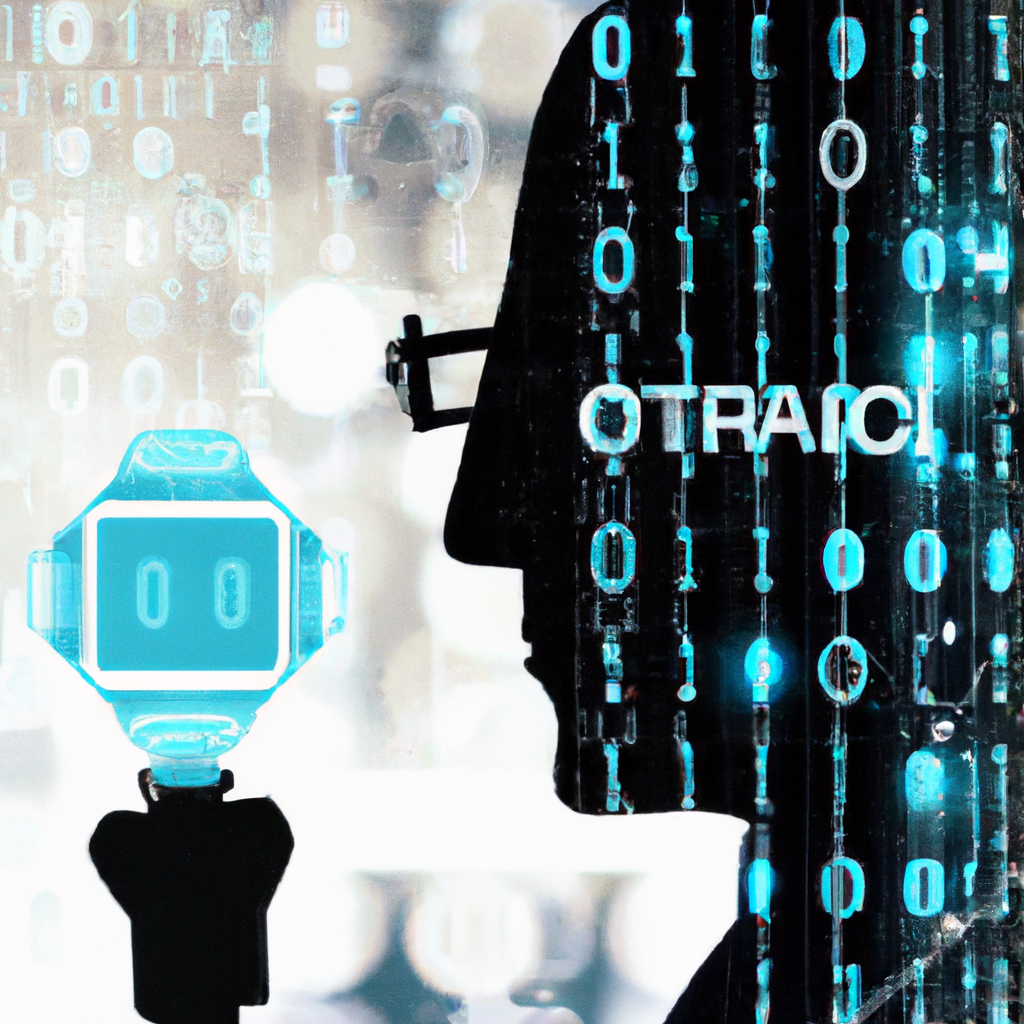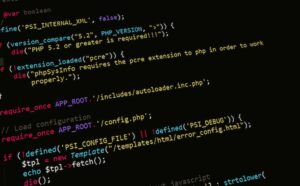-
Table of Contents
- Introduction
- How AI is Changing the Job Market: Benefits and Risks
- The Impact of AI on Job Security: What Employers Need to Know
- Exploring the Impact of AI on Job Creation and Destruction
- The Impact of AI on the Future of Work: What to Expect
- The Impact of AI on the Job Market: What Employers Should Do to Prepare
- Conclusion
“Unlock the Potential of AI: Embrace the Job Market of the Future!”
Introduction
The impact of artificial intelligence (AI) on the job market is a topic of much debate. AI has the potential to revolutionize the way we work, but it also presents a number of challenges. This article will explore the opportunities and challenges posed by AI in the job market, and how it can be used to create new jobs and improve existing ones. We will also discuss the potential implications of AI on the labor market, and how it can be used to create a more equitable and efficient job market. Finally, we will look at the ethical considerations of using AI in the job market, and how it can be used to ensure fairness and equity.
How AI is Changing the Job Market: Benefits and Risks
The job market is changing rapidly, and artificial intelligence (AI) is playing a major role in this transformation. AI is being used to automate processes, improve efficiency, and reduce costs. As a result, many jobs are being replaced by AI-driven technologies, while new jobs are being created in the process.
The benefits of AI in the job market are numerous. AI can help businesses become more efficient and productive, allowing them to focus on more important tasks. AI can also help businesses reduce costs, as it can automate mundane tasks and reduce the need for human labor. Additionally, AI can help businesses make better decisions by providing data-driven insights.
However, there are also risks associated with AI in the job market. For example, AI can lead to job displacement, as it can replace human labor in many industries. Additionally, AI can lead to increased inequality, as those with the skills to work with AI may be able to find higher-paying jobs, while those without the skills may be left behind.
Overall, AI is changing the job market in both positive and negative ways. While it can lead to increased efficiency and cost savings, it can also lead to job displacement and inequality. It is important for businesses to consider the potential risks and benefits of AI before implementing it in their operations.
The Impact of AI on Job Security: What Employers Need to Know
As artificial intelligence (AI) continues to become more prevalent in the workplace, employers need to be aware of the potential impact it can have on job security. AI is a rapidly growing technology that has the potential to automate many of the tasks that humans currently perform. This could lead to job losses, as machines become more efficient and cost-effective than human labor.
However, it’s important to note that AI is not necessarily a threat to job security. In fact, it can be used to create new opportunities and enhance existing ones. AI can help employers automate mundane tasks, freeing up employees to focus on more complex and creative tasks. It can also help employers identify areas of improvement and increase efficiency.
When it comes to job security, employers need to be aware of the potential risks and benefits of AI. They should consider how AI can be used to improve their operations and create new opportunities for their employees. They should also be aware of the potential for job losses and take steps to ensure that their employees are adequately trained and prepared for any changes that may occur.
Finally, employers should be aware of the ethical implications of using AI. They should ensure that their AI systems are designed in a way that respects the privacy and autonomy of their employees. They should also be aware of any potential biases that may be built into their AI systems and take steps to mitigate them.
By taking the time to understand the potential impact of AI on job security, employers can ensure that their employees are protected and that their operations are running smoothly. AI can be a powerful tool for improving efficiency and creating new opportunities, but employers need to be aware of the potential risks and take steps to ensure that their employees are adequately prepared for any changes that may occur.
Exploring the Impact of AI on Job Creation and Destruction
The impact of artificial intelligence (AI) on job creation and destruction is a hot topic of debate. On one hand, AI has the potential to create new jobs and industries, while on the other, it could lead to job losses in certain sectors.
AI is already being used in many industries, from healthcare to finance, and its potential to automate certain tasks is undeniable. Automation can lead to increased efficiency and cost savings, but it can also lead to job losses. For example, AI-driven automation has already replaced many manual labor jobs in manufacturing and other industries.
At the same time, AI can also create new jobs. AI-driven automation can free up workers to focus on more creative and complex tasks, such as developing new products or services. AI can also be used to create new jobs in areas such as data analysis, machine learning, and software development.
The impact of AI on job creation and destruction is complex and difficult to predict. It is clear, however, that AI will have a significant impact on the job market in the coming years. Companies should be aware of the potential implications of AI and plan accordingly.
In conclusion, AI has the potential to both create and destroy jobs. Companies should be aware of the potential implications of AI and plan accordingly. It is important to recognize that AI can create new opportunities for workers, while also leading to job losses in certain sectors.
The Impact of AI on the Future of Work: What to Expect
The future of work is changing rapidly, and artificial intelligence (AI) is playing a major role in this transformation. AI is already being used in many industries, from healthcare to finance, and its impact on the future of work is expected to be far-reaching.
AI is expected to automate many of the mundane tasks that are currently done by humans, freeing up time for more creative and meaningful work. AI can also help to improve decision-making processes, as it can quickly analyze large amounts of data and provide insights that would otherwise be difficult to obtain. This could lead to more efficient and effective operations, as well as improved customer service.
AI is also expected to create new job opportunities. For example, AI-driven automation could lead to the creation of new roles such as AI engineers, data scientists, and AI strategists. These roles will require specialized skills and knowledge, and will likely be in high demand in the future.
At the same time, AI could also lead to job losses, as some roles become obsolete due to automation. This could have a significant impact on the labor market, and it is important to consider how to best prepare for this shift.
Overall, AI is expected to have a major impact on the future of work. It could lead to increased efficiency and improved decision-making, as well as the creation of new job opportunities. However, it could also lead to job losses, and it is important to consider how to best prepare for this shift.
The Impact of AI on the Job Market: What Employers Should Do to Prepare
As Artificial Intelligence (AI) continues to become more prevalent in the workplace, employers should be aware of the potential impact it could have on the job market. AI has the potential to automate many tasks that were previously done by humans, which could lead to job losses. However, AI can also create new jobs and opportunities, so employers should be prepared to take advantage of these changes.
To prepare for the impact of AI on the job market, employers should first assess their current workforce and identify which roles could be automated or replaced by AI. This will help them determine which roles need to be filled and which roles can be eliminated. Employers should also consider how they can use AI to improve existing roles and create new ones. For example, AI can be used to automate mundane tasks, freeing up employees to focus on more complex tasks.
In addition, employers should invest in training and development programs to help their employees stay up-to-date with the latest AI technologies. This will ensure that their employees are prepared to take on new roles and responsibilities as AI becomes more prevalent in the workplace.
Finally, employers should be aware of the potential ethical implications of using AI in the workplace. AI can be used to make decisions that could have a significant impact on employees, so employers should ensure that they are using AI responsibly and ethically.
By taking these steps, employers can ensure that they are prepared for the impact of AI on the job market. By assessing their current workforce, investing in training and development, and being aware of the ethical implications of using AI, employers can ensure that they are ready to take advantage of the opportunities that AI presents.
Conclusion
The Impact of AI on the Job Market presents both opportunities and challenges. On the one hand, AI can help to automate mundane tasks, freeing up workers to focus on more creative and meaningful work. On the other hand, AI can also lead to job displacement and the need for workers to acquire new skills to remain competitive in the job market. Ultimately, the success of AI in the job market will depend on how well governments, businesses, and individuals are able to adapt to the changing landscape.




